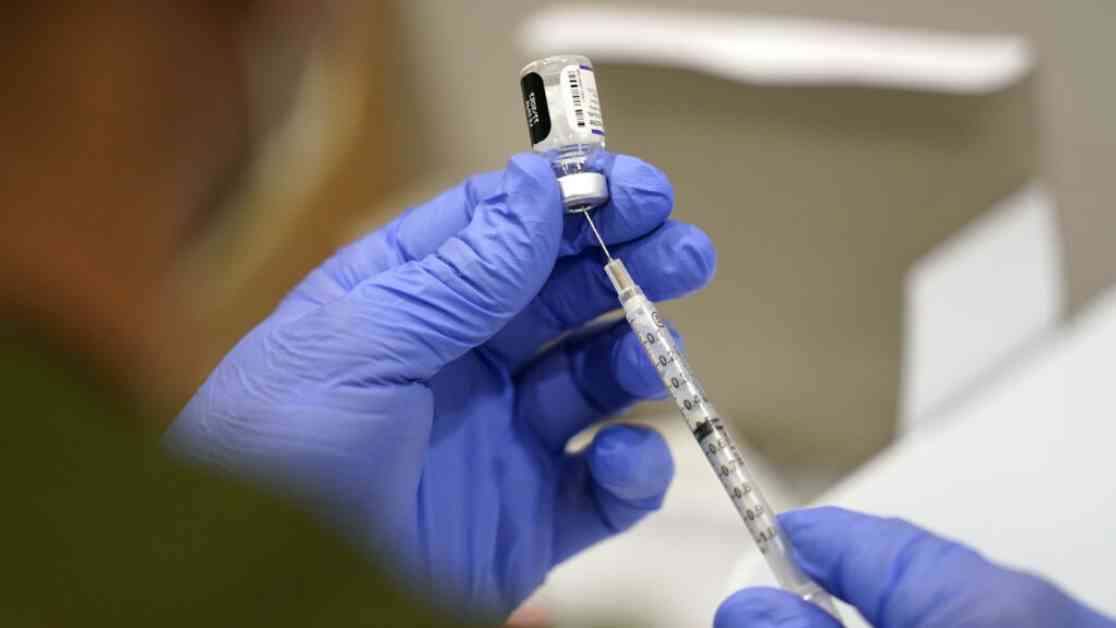Pfizer and BioNTech faced a setback in their efforts to develop a Covid-Influenza combination vaccine, as the Phase 3 trial results showed a lower immune response against the influenza B strain. The companies announced on Friday that their mRNA vaccine candidate successfully generated an immune response against influenza A and the SARS-CoV-2 virus, which causes Covid-19. However, the response against influenza B fell short of expectations.
In a statement, Pfizer and BioNTech acknowledged the need for adjustments to the combination vaccine candidate to enhance the immune response against influenza B. They are currently evaluating potential modifications and plan to discuss the next steps with health authorities. This setback highlights the complexity and challenges of developing a dual vaccine that targets both Covid-19 and influenza.
As the world continues to battle the Covid-19 pandemic and prepares for future flu seasons, the development of a combination vaccine has been seen as a promising solution to protect against multiple respiratory illnesses. The Phase 3 trial results serve as a reminder of the uncertainties and obstacles in vaccine development, even for well-established pharmaceutical companies like Pfizer and BioNTech.
Challenges in Developing a Dual Vaccine
Creating a vaccine that effectively targets different strains of influenza and the SARS-CoV-2 virus is a complex task. Each pathogen presents unique challenges in terms of immune response and antigen variability. Influenza viruses, especially influenza B, are known for their ability to mutate rapidly, making it difficult to predict which strains will circulate each season.
The immune response against influenza B in the Phase 3 trial results underscores the need for a comprehensive approach to vaccine design. Pfizer and BioNTech will need to consider how to enhance the vaccine’s efficacy against all influenza strains, not just the predominant ones. This may involve adjusting the formulation, dosage, or delivery method of the vaccine to achieve the desired immune response.
Implications for Public Health
The setback in developing a Covid-Influenza combination vaccine raises important questions about public health strategies for managing respiratory illnesses. While Covid-19 has dominated headlines in recent years, influenza remains a significant threat to global health, causing seasonal outbreaks and contributing to hospitalizations and deaths.
A dual vaccine that provides protection against both Covid-19 and influenza could be a game-changer in preventing respiratory infections and reducing the burden on healthcare systems. However, the challenges encountered by Pfizer and BioNTech highlight the need for continued research and innovation in vaccine development to address evolving threats.
Future Directions and Collaborations
Despite the setback in the Phase 3 trial, Pfizer and BioNTech remain committed to advancing the development of a Covid-Influenza combination vaccine. The companies are exploring potential collaborations with other research institutions and vaccine developers to leverage expertise and resources in overcoming the immune response challenges.
Collaborations with academic institutions, government agencies, and other pharmaceutical companies could provide valuable insights and support for refining the vaccine candidate. By pooling together knowledge and capabilities, stakeholders in the healthcare and biotech sectors can work towards a more effective and comprehensive solution for respiratory infections.
In conclusion, the setback faced by Pfizer and BioNTech in developing a Covid-Influenza combination vaccine highlights the complexity and challenges of creating a dual vaccine. The Phase 3 trial results underscore the need for ongoing research and innovation to address the evolving threats of respiratory illnesses. By exploring new collaborations and refining vaccine design, the companies aim to overcome the current obstacles and develop a vaccine that provides robust protection against both Covid-19 and influenza.


















